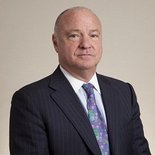A recent article in the Las Vegas Review-Journal poked fun at Massachusetts‘ nascent casino industry and at Penn National Gaming‘s Plainridge Park in particular. All that schadenfreude may
not have been gratuitous after all, in view of the gloom presently emanating from the Bay State. With both MGM Springfield and Wynn Resorts looking at 2018 openings (possibly later in Wynn’s case), New England casino expert Clyde Barrow tells the Boston Globe, “You could say the state is losing $1 billion in revenue because of the delay from 2016 to 2018.”
With perhaps a bit of exaggeration, Barrow says the implementation of casino gambling in Massachusetts could last as long as the decade-plus it took to get it legalized. With the Massachusetts  Gaming Commission powerless to speed things along, Gov. Charlie Baker (R) is doing the responsible thing and not baking any casino-revenue assumptions into his state budgets. For instance, MGC Chairman Stephen Crosby estimates that the state is forfeiting $18 million for every month that Boston Mayor Martin “McCheese” Walsh (above) keeps Wynn Everett tied up in litigation.
Gaming Commission powerless to speed things along, Gov. Charlie Baker (R) is doing the responsible thing and not baking any casino-revenue assumptions into his state budgets. For instance, MGC Chairman Stephen Crosby estimates that the state is forfeiting $18 million for every month that Boston Mayor Martin “McCheese” Walsh (above) keeps Wynn Everett tied up in litigation.
Crosby is also starting to cast doubt on whether the final license, coveted by New Bedford and Brockton, will be issued at all (especially  now that Twin River Casino, in Rhode Island, is planning to open a slot parlor on Massachusetts’ southern border and two tribes in Connecticut have similar aspirations). The Mashpee Wampanoag are no closer to obtaining land-in-trust status … and may be getting farther away as the political makeup in Washington, D.C., keeps shifting to the right. And on Martha’s Vineyard, the Aquinnah Wampanoag face both internal and external conflict. Island-dwelling tribesmen don’t want a casino, mainlanders do. Also, the tribe has to make the case that a 1983 renunciation of gambling in return for land was rendered null and void by 1988’s Indian Gaming Regulatory Act.
now that Twin River Casino, in Rhode Island, is planning to open a slot parlor on Massachusetts’ southern border and two tribes in Connecticut have similar aspirations). The Mashpee Wampanoag are no closer to obtaining land-in-trust status … and may be getting farther away as the political makeup in Washington, D.C., keeps shifting to the right. And on Martha’s Vineyard, the Aquinnah Wampanoag face both internal and external conflict. Island-dwelling tribesmen don’t want a casino, mainlanders do. Also, the tribe has to make the case that a 1983 renunciation of gambling in return for land was rendered null and void by 1988’s Indian Gaming Regulatory Act.
Barrow posits various horror scenarios: What if there is no third license issued? What if MGM compromises its commitment to Springfield? What if Steve Wynn up and leaves the state? (He’s done it elsewhere.) Barrow predicts “the state will muddle along” but I’m no so sanguine.
* Last October, an armed confrontation among tribal members brought about the federal closure of Chukchansi Gold Resort Casino. Now, after a lengthy cooling-off period, there’s movement afoot to reopen the California tribal facility. Casino COO Christian Goode thinks it could happen by Labor Day but tribal leader Reggie Lewis is more cautious. Neither the California or federal governments has signed off on it yet. Among the problems to be resolved is that the Lewis-led faction of the tribe has been recognized by the Bureau of Indian Affairs and federal Board of Indian Appeals but not by Madera County. Also, tribal members who were disenrolled between 2010 and 2012 have to be reintegrated into the electorate.
The Chukchansi Economic Development Authority has negotiated a $35 million loan for the purpose of getting the casino open again. However, it also missed a $12 million payment last March on a $250 million bond. If the various factions can be reconciled and the casino reopened, patrons can look forward to as 400 new slot machines. Best of all, 1,000-plus casino workers will have jobs again.
* Congratulations to MGM Resorts International on having saved two billion gallons of water over the last seven years. Much, however, remains to be done.

